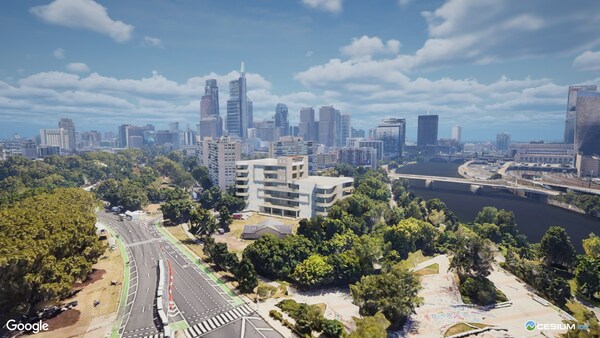PHILADELPHIA – Cesium is excited to announce that Photorealistic 3D Tiles from Google Maps Platform are now included with Cesium ion, the SaaS platform for tiling, combining, and streaming global-scale 3D data.
As of today’s General Availability release, these detailed, visually stunning cities are now production ready for use in your immersive 3D geospatial applications and experiences.
Sign up for a free Cesium ion account or simply log in to your existing account to start streaming to the web or your preferred creation engine, including CesiumJS, Unreal Engine, Unity, or NVIDIA Omniverse.
About Photorealistic 3D Tiles with Cesium ion:
- Photorealistic 3D Tiles uses the Open Geospatial Consortium’s 3D Tiles standard created by Cesium.
- Use Cesium ion to combine your own 3D geospatial data with Photorealistic 3D Tiles to build immersive metaverse experiences.
- Photorealistic 3D Tiles are available in over 2,500 cities and 49 countries.
- Cesium ion with Photorealistic 3D Tiles gives developers access to an open ecosystem of 3D Tiles-enabled runtime software, including CesiumJS, Unreal Engine, Unity, and NVIDIA Omniverse.
Since the experimental release in May, users have leveraged Cesium and Photorealistic 3D Tiles to build immersive experiences for industries such as AEC, flight simulation, real estate, and more.
Visit Cesium for more information and tutorials on building with Google’s Photorealistic 3D Tiles with CesiumJS, Cesium for Unreal, Cesium for Unity, and Cesium for Omniverse.
About Cesium – 3D Geospatial for the Metaverse
Cesium is the open 3D geospatial platform for the metaverse. Cesium created 3D Tiles, the open standard for streaming massive 3D geospatial data. With open source offerings like Cesium for Unreal, Cesium for Unity, and Cesium for Omniverse, we’re empowering creators to build digitized worlds with real-world data at scale.


